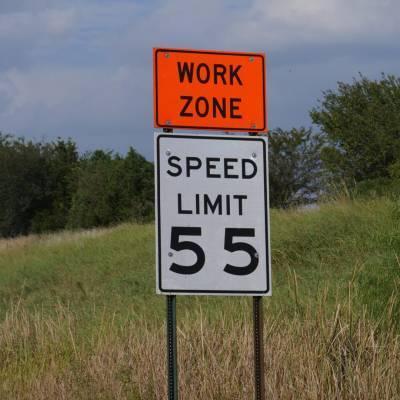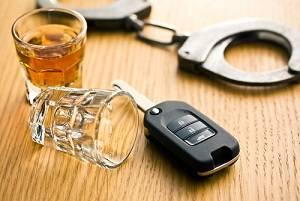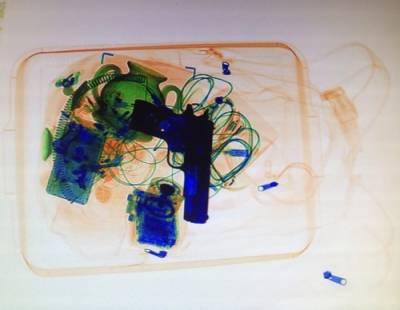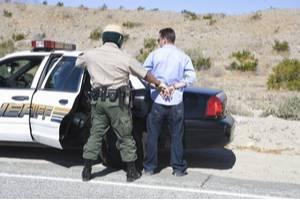Recent Blog Posts
Is My Spouse Eligible for Compassionate Release?
 For those with a loved one in federal prison, life can be filled with daily struggles. The situation can be even harder to endure if their incarceration is complicated by health, age, or family-related matters. Fortunately, in such cases, compassionate release allows the inmate the possible opportunity for an early release or sentence reduction. However, compassionate release can be a complicated process and it is essential that you work with an experienced attorney throughout the case.
For those with a loved one in federal prison, life can be filled with daily struggles. The situation can be even harder to endure if their incarceration is complicated by health, age, or family-related matters. Fortunately, in such cases, compassionate release allows the inmate the possible opportunity for an early release or sentence reduction. However, compassionate release can be a complicated process and it is essential that you work with an experienced attorney throughout the case.
Circumstances That May Allow for a Compassionate Release
If there are extraordinary or compelling circumstances that have changed since the inmate was originally sentenced, they may be eligible for a compassionate release.
There are three main reasons why such a release may be granted:
- Medical conditions – If an inmate is suffering from a terminal, incurable disease and doctors determine they have less than 18 months to live, they are eligible for a compassionate release. Inmates may also qualify if they cannot care for themselves and are bedridden at least half of the time or have a cognitive condition including Alzheimer’s or brain trauma.
Know the Penalties for Speeding in a Texas Construction Zone
 All traffic violations in the state of Texas have the possibility of causing major headaches for drivers, and your trouble can literally double for speeding and other violations in a construction zone. To protect construction workers and prevent costly and dangerous accidents, traffic fines double in construction zones and other maintenance areas. Here is some basic information on construction zone traffic laws.
All traffic violations in the state of Texas have the possibility of causing major headaches for drivers, and your trouble can literally double for speeding and other violations in a construction zone. To protect construction workers and prevent costly and dangerous accidents, traffic fines double in construction zones and other maintenance areas. Here is some basic information on construction zone traffic laws.
Rules to Follow Construction Zones in Texas
Given the challenges of driving through a construction zone, including narrow lanes, changing traffic patterns, heavy equipment, and the presence of construction workers, speed limits for all vehicles are reduced. The temporary speed limit signs for construction zones should be followed throughout the zone, even when workers, equipment, or construction markings like barrels are not present. It is only safe to resume the normal speed limit once signs clearly show you are allowed to do so.
5 Ways to Beat a DWI in San Antonio
 Driving while intoxicated by alcohol is a criminal offense in all fifty states, but states vary in terms of criminal penalties. In Texas, a first-time DWI offense is punishable by a maximum fine of $2,000, loss of driving privileges, and jail time. Texas is unique in that, unlike many other states, there is a minimum jail sentence for DWI even if the offender has never been arrested for drunk driving in the past. Penalties for second and third drunk driving convictions are punished more severely and penalties may include months or years in prison.
Driving while intoxicated by alcohol is a criminal offense in all fifty states, but states vary in terms of criminal penalties. In Texas, a first-time DWI offense is punishable by a maximum fine of $2,000, loss of driving privileges, and jail time. Texas is unique in that, unlike many other states, there is a minimum jail sentence for DWI even if the offender has never been arrested for drunk driving in the past. Penalties for second and third drunk driving convictions are punished more severely and penalties may include months or years in prison.
If you were charged with drunk driving in Texas, contact a criminal defense lawyer for help. Your attorney can evaluate your situation and determine which defense strategies are most likely to yield favorable results in your case.
Possible Defenses to Drunk Driving Charges in Texas
Each case is different and there is no foolproof way to defend against DWI charges. Some of the possible defense strategies a DWI defense attorney may have at their disposal include:
Five Ways You Can Lose Your CDL in Texas
 If you make a living driving the roads and highways of Texas, you know how valuable your Commercial Driver License (CDL) is to your profession. Losing the ability to drive to a traffic violation or multiple violations would mean a significant loss of income and possibly lead to the loss of your job. If you are accused of any of the following violations, it is important that you contact a defense attorney who is knowledgeable about the ramifications and will fight for your ability to keep driving.
If you make a living driving the roads and highways of Texas, you know how valuable your Commercial Driver License (CDL) is to your profession. Losing the ability to drive to a traffic violation or multiple violations would mean a significant loss of income and possibly lead to the loss of your job. If you are accused of any of the following violations, it is important that you contact a defense attorney who is knowledgeable about the ramifications and will fight for your ability to keep driving.
Top CDL Convictions That Lead to a Disqualification
Here is a quick recap of some of the common ways in which your CDL might be suspended or revoked:
- Driving while intoxicated - If you are convicted of a DWI, your CDL may be suspended for at least one year. If you were driving a hazardous materials vehicle, the suspension would be at least three years. A second offense would lead to a lifetime disqualification.
What Are the Penalties for an Open Container in a Vehicle in Texas?
 You are heading out for the night and one of the passengers in your car decides to crack open a beer or take a quick swig from a bottle of liquor. What is the risk to you, even if you have not been drinking? Under Texas law, the driver of a vehicle could be charged with a Class C misdemeanor if there is an open container of alcohol in your car, even if you have not been drinking. When an open container is combined with a Driving While Intoxicated (DWI) charge, the penalties can be even steeper.
You are heading out for the night and one of the passengers in your car decides to crack open a beer or take a quick swig from a bottle of liquor. What is the risk to you, even if you have not been drinking? Under Texas law, the driver of a vehicle could be charged with a Class C misdemeanor if there is an open container of alcohol in your car, even if you have not been drinking. When an open container is combined with a Driving While Intoxicated (DWI) charge, the penalties can be even steeper.
Open Container Violations in Texas
To avoid charges, there cannot be an open container of alcohol within the passenger area of the vehicle. Open contains means that the bottle or can that the alcoholic beverage is in has been opened, has a broken seal, or has contents that have been partially removed. The vehicle does not even need to be moving for you to be charged. If you do have to transport alcohol that has already been opened, it can legally be stored in a locked glove compartment, your trunk, or in the area behind the last row of seats if your car does not have a trunk. There are a few exceptions to the rule. Alcohol can be consumed in vehicles such as a bus, a taxi, or a limousine. They can also be enjoyed in the living quarters of a motor home or recreational vehicle.
How Do Texas Gun Laws Apply at an Airport?
 If you are planning a fun-filled vacation or just picking up a friend, it is important to know your rights to carry firearms in and around a Texas airport. The Transportation Security Administration (TSA) reported that the number of firearms found at airports more than doubled last year. State and federal gun laws are both enforced at the airport, so it is best to know your rights and plan ahead for a lawful trip. At Law Offices of Sam H. Lock, we represent clients charged with all state and federal gun crimes.
If you are planning a fun-filled vacation or just picking up a friend, it is important to know your rights to carry firearms in and around a Texas airport. The Transportation Security Administration (TSA) reported that the number of firearms found at airports more than doubled last year. State and federal gun laws are both enforced at the airport, so it is best to know your rights and plan ahead for a lawful trip. At Law Offices of Sam H. Lock, we represent clients charged with all state and federal gun crimes.
Where Am I Allowed to Carry at a Texas Airport?
Under Texas law, you are allowed to open carry a handgun in a belt or shoulder holster or concealed on your person, as long as you are in an unsecured area of the airport. This includes the main airport lobby, pick-up and drop-off areas, parking facilities, and the baggage claim area. Once you attempt to enter a secured area, such as through airport security, federal law applies. If you are planning to fly with a firearm or otherwise enter a secured area, you should follow the following steps to avoid a serious fine and/or jail time. Firearms, both handguns and long guns, ammunition, and all firearm parts except for scopes must be declared at the luggage counter. They must be unloaded and secured in a locked, hard-sided container and placed in checked luggage. This includes replica firearms, including replicas that are toys. Only rifle scopes are allowed in carry-on baggage. To be safe, check with TSA Guidelines before packing.
Understanding White-Collar Mortgage Fraud in Texas
 White-collar crimes refer to various criminal behaviors typically committed by business professionals. One widespread example of a white-collar crime is mortgage fraud, which is any misstatement of information used by a lender when funding a property. Mortgage fraud is becoming increasingly prevalent in Texas and across the United States. It is essential to understand how mortgage fraud is committed, its penalties, and how to prevent prosecution in the event that you are accused.
White-collar crimes refer to various criminal behaviors typically committed by business professionals. One widespread example of a white-collar crime is mortgage fraud, which is any misstatement of information used by a lender when funding a property. Mortgage fraud is becoming increasingly prevalent in Texas and across the United States. It is essential to understand how mortgage fraud is committed, its penalties, and how to prevent prosecution in the event that you are accused.
Ways Mortgage Fraud is Committed
Individuals can commit mortgage fraud in a variety of ways. A homebuyer, seller, real estate agent, or lender can misrepresent information at any stage of the process of obtaining a mortgage. In the most common type of mortgage fraud, an entity involved in the mortgage process may choose to omit financial information, misrepresent costs, or falsify a buyer's ability to apply for a mortgage. Prosecutors can find fraudulent statements in:
Can I Defend Myself Against a Motion to Revoke My Probation in Texas?
 After being charged with a crime in Texas, some offenders will be released under a period of supervision called probation. Probation is used to ensure that a person previously sentenced for a crime is following the law. A probation officer is assigned to an individual to monitor his or her progress after incarceration or probation may be used as an alternative to incarceration for a crime. When that individual fails to maintain the probation order and breaks the law, the state of Texas can make a motion to revoke the probation. However, individuals who feel they had their probation revoked unjustly may have a case to defend themselves and maintain their probationary period.
After being charged with a crime in Texas, some offenders will be released under a period of supervision called probation. Probation is used to ensure that a person previously sentenced for a crime is following the law. A probation officer is assigned to an individual to monitor his or her progress after incarceration or probation may be used as an alternative to incarceration for a crime. When that individual fails to maintain the probation order and breaks the law, the state of Texas can make a motion to revoke the probation. However, individuals who feel they had their probation revoked unjustly may have a case to defend themselves and maintain their probationary period.
Reasons Probation May Be Revoked
If an individual violates their probation, the state of Texas will file to have the probation removed. The process is done by filing a formal document called the Motion to Revoke Probation, which includes the incident that led to the revocation. Typically, any law-breaking activity can result in a loss of probation. Some of the most common reasons probation is revoked include:
Can I Get a DUI For Drinking and Boating in Texas?
 It is common knowledge that drinking and driving is illegal and can lead to a DUI. But what are the drinking laws related to boating? In the state of Texas, drinking and boating can lead to a BWI (boating while intoxicated). As the excitement of spring lingers and Texans prepare for warmer weather, it is important to understand the drinking laws while boating in Texas.
It is common knowledge that drinking and driving is illegal and can lead to a DUI. But what are the drinking laws related to boating? In the state of Texas, drinking and boating can lead to a BWI (boating while intoxicated). As the excitement of spring lingers and Texans prepare for warmer weather, it is important to understand the drinking laws while boating in Texas.
What is a BWI?
Just like a DUI charge (driving while intoxicated), a boating while intoxicated, or BWI, charge has similar consequences including license suspension, fines and even jail time. However, there are important differences to remember between drinking laws in a motorized vehicle and a watercraft.
In a car, it is illegal to have an open container of alcohol. A driver can be arrested in Texas for having open alcohol in his or her car. But this law does not apply to boating. You can have open alcohol on the boat as long as the boat driver is not over the legal limit of intoxication when driving. Texas law considers someone legally intoxicated when their blood alcohol level (BAC) reaches 0.08 percent or above. A breathalyzer test can be administered on the water by a policing boat to determine a boater’s BAC.
Understanding Intoxication Manslaughter in San Antonio, Texas
 Being charged with DWI/DUI is very serious, but an intoxication manslaughter charge in Texas is considered the most severe of toxication-related offenses. Intoxication manslaughter occurs when someone operating a motor vehicle is under the influence of drugs or alcohol and causes an accident, resulting in the death of another. This type of occurrence can be life-altering for all parties involved. Hiring an experienced attorney that can help you understand the circumstances stemming from such a severe charge is imperative because of the penalties and fines you would likely face.
Being charged with DWI/DUI is very serious, but an intoxication manslaughter charge in Texas is considered the most severe of toxication-related offenses. Intoxication manslaughter occurs when someone operating a motor vehicle is under the influence of drugs or alcohol and causes an accident, resulting in the death of another. This type of occurrence can be life-altering for all parties involved. Hiring an experienced attorney that can help you understand the circumstances stemming from such a severe charge is imperative because of the penalties and fines you would likely face.
What Does Intoxication Manslaughter Mean?
Even if there was no intent to harm anyone and the car wreck was purely accidental, you could still be charged with intoxication manslaughter. There are a variety of charges that can be filed when an impaired driver causes an accident involving a serious injury or death, including:
-
Intoxication Manslaughter - This offense, specific to the state of Texas, is when a vehicle accident involving a death is caused by a driver who is under the influence of drugs or alcohol





